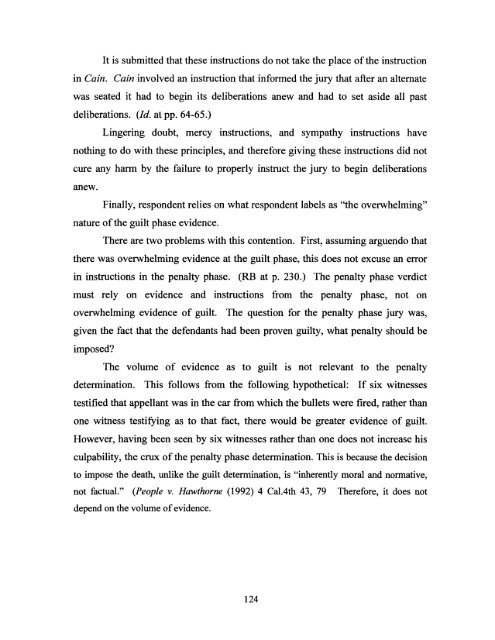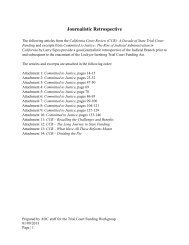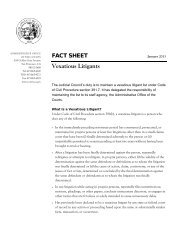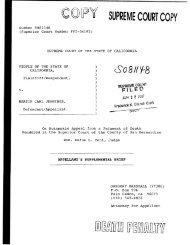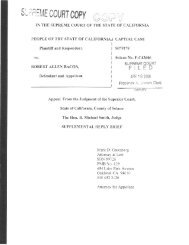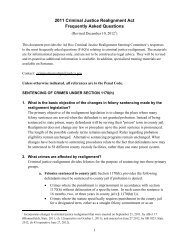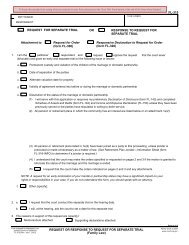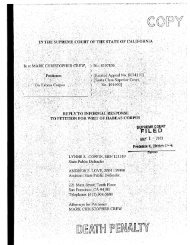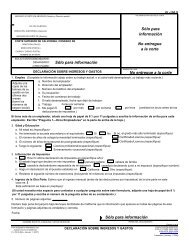Appellant, William Satele, Reply Brief - California Courts - State of ...
Appellant, William Satele, Reply Brief - California Courts - State of ...
Appellant, William Satele, Reply Brief - California Courts - State of ...
Create successful ePaper yourself
Turn your PDF publications into a flip-book with our unique Google optimized e-Paper software.
It is submitted that these instructions do not take the place <strong>of</strong>the instruction<br />
in Cain. Cain involved an instruction that informed the jury that after an alternate<br />
was seated it had to begin its deliberations anew and had to set aside all past<br />
deliberations. (Id. at pp. 64-65.)<br />
Lingering doubt, mercy instructions, and sympathy instructions have<br />
nothing to do with these principles, and therefore giving these instructions did not<br />
cure any harm by the failure to properly instruct the jury to begin deliberations<br />
anew.<br />
Finally, respondent relies on what respondent labels as "the overwhelming"<br />
nature <strong>of</strong>the guilt phase evidence.<br />
There are two problems with this contention. First, assuming arguendo that<br />
there was overwhelming evidence at the guilt phase, this does not excuse an error<br />
in instructions in the penalty phase. (RB at p. 230.) The penalty phase verdict<br />
must rely on evidence and instructions from the penalty phase, not on<br />
overwhelming evidence <strong>of</strong> guilt. The question for the penalty phase jury was,<br />
given the fact that the defendants had been proven guilty, what penalty should be<br />
imposed?<br />
The volume <strong>of</strong> evidence as to guilt is not relevant to the penalty<br />
determination. This follows from the following hypothetical: If six witnesses<br />
testified that appellant was in the car from which the bullets were fired, rather than<br />
one witness testifying as to that fact, there would be greater evidence <strong>of</strong> guilt.<br />
However, having been seen by six witnesses rather than one does not increase his<br />
culpability, the crux <strong>of</strong>the penalty phase determination. This is because the decision<br />
to impose the death, unlike the guilt determination, is "inherently moral and normative,<br />
not factual." (People v. Hawthorne (1992) 4 Cal.4th 43, 79 Therefore, it does not<br />
depend on the volume <strong>of</strong>evidence.<br />
124


